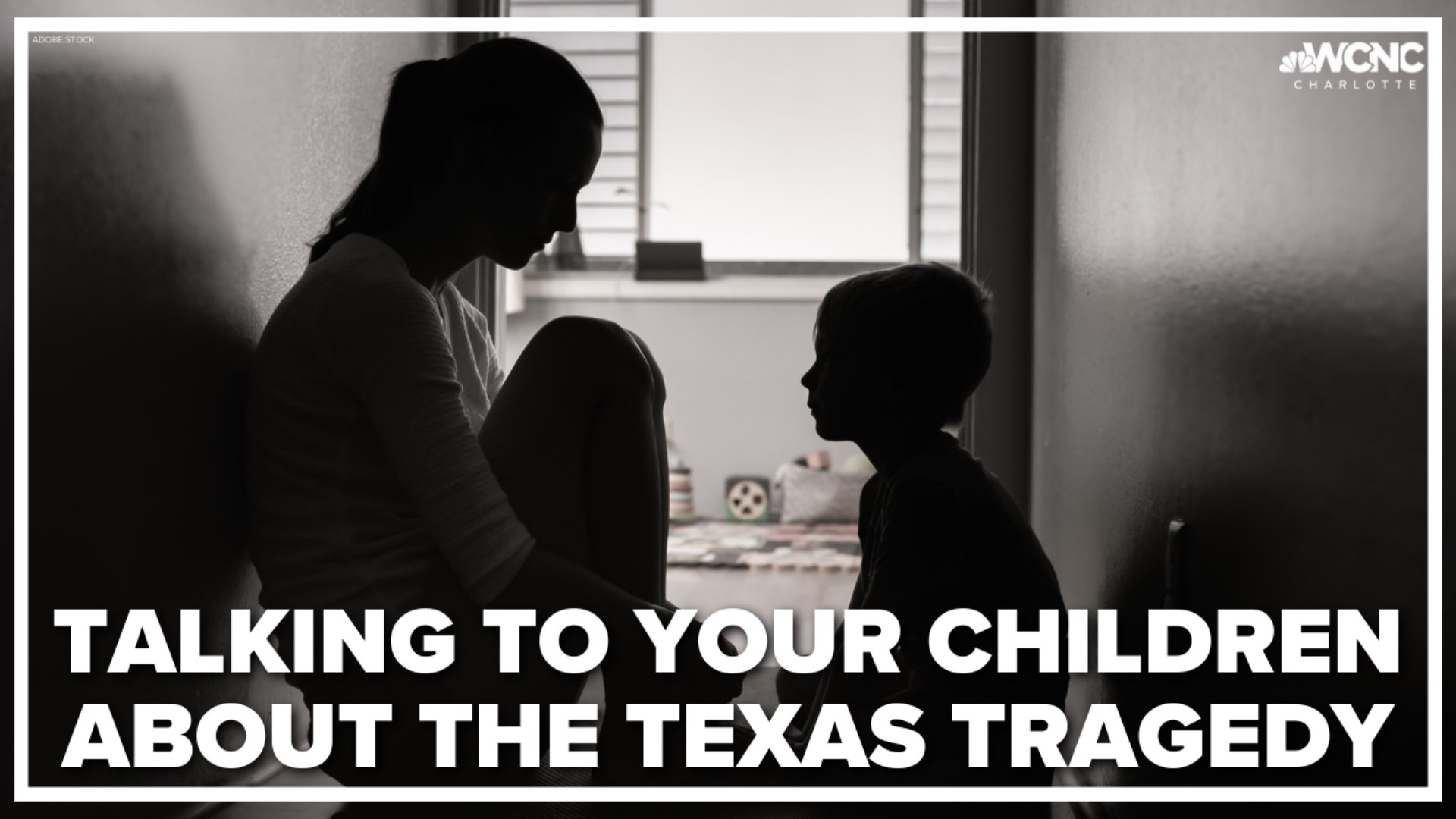Most parents don't have the words to understand what happened, let alone talk to their kids about it, and many don't realize kids of various ages will need different talks.
This conversation has to be specific to your child.
The way you talk to an elementary school student will be a lot different from how you speak to a high schooler - but the experts agree - that their guardian should be the one who speaks to them.
"I was selfishly grateful that he was already grateful because he's out of school," Titania Jordan, Chief Parenting Officer at BARK Technology, said. "I was immediately filled with guilt and remorse for the families who have to wake up every day and send their kid to school knowing that this could happen,"
Her son is 13 and a middle school in Dekalb County.
"I know that he's probably already heard about it because he's probably on his phone and has seen it on Tiktok and Snapchat," she said.
But she said she wanted him to know he could come to her with questions about what happened.
"Asking open-ended questions is the best route: how do you feel about this? What do you know about this? What can be done about this," Katey McPherson, Child Advocate and Professional Development Director for BARK said.
McPherson said the conversation changes depending on how old your child is.
For elementary school kids, provide simple information and assure them that they're safe. When talking to middle school kids - make sure you're answering the questions they have and help them separate facts from fantasy. And for high schoolers, make sure to emphasize how they can protect themselves and how to get help.
"I have 4 teenage daughters, for them they want to do something actionable within their own communities. Having a sense of control is really important," she said.
For all kids, it's essential to
- Reaffirm their safety
- Make time to talk
- Review safety procedures
- Monitor their emotional state
- Maintain a normal routine
Ignoring what happened won't make it go away, Jordan said.
"We are way past the time in society that we can live in an oblivious state. Our children need to know that they are fiercely loved. That we will do everything we can to protect them. But they also need to be aware, and be alert, and say something if they see something," she said.
Jordan and McPherson talk to their children about kindness and standing up to bullies daily.
They also empower them to speak up if they sense something is off with a classmate.
"The onus is on us, as adults, as these children's parents and caregivers, to protect them. And we are not doing that," Jordan said
For more information on approaching these conversations with your children, check out the resources and guides on the National Association of School Psychologists website.

